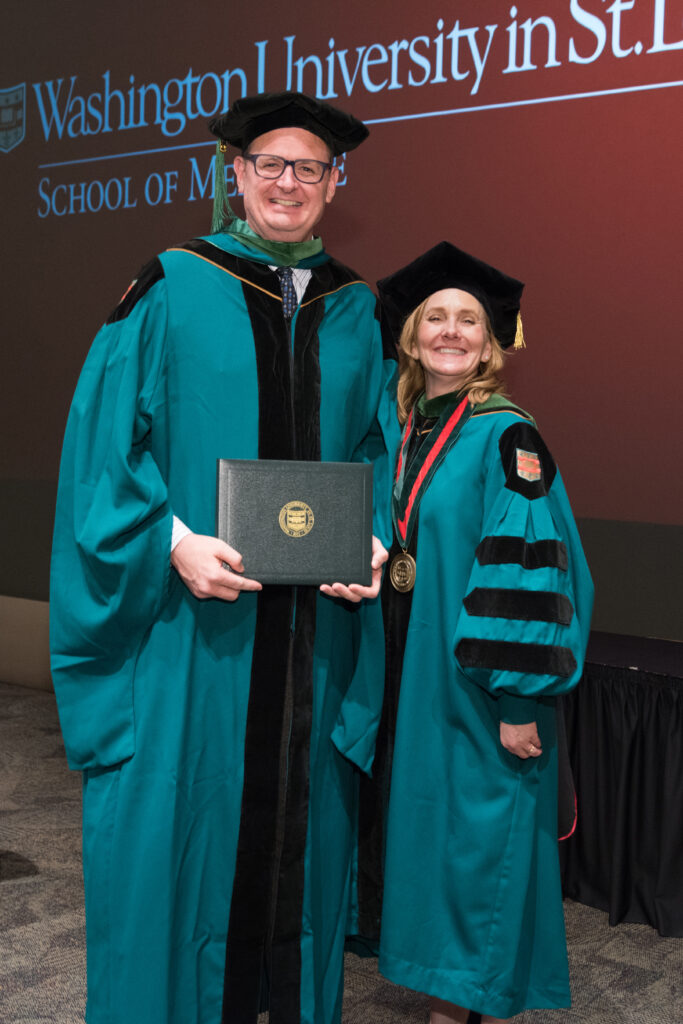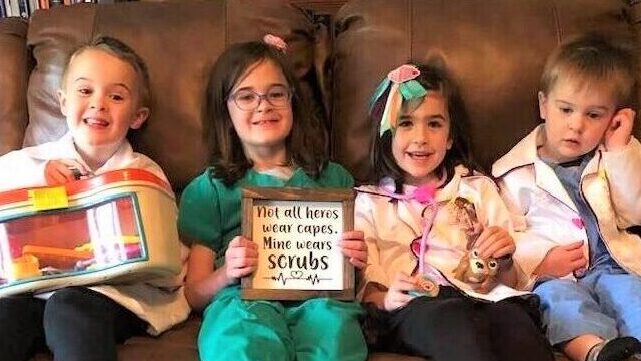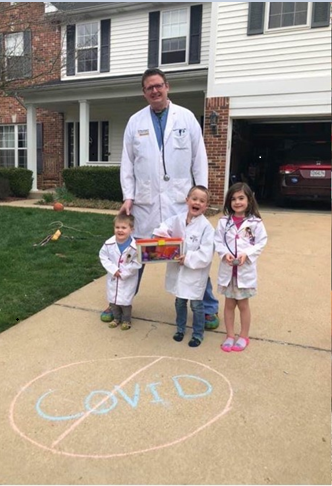In 2015 Kenneth Remy, MD, MHSc arrived in St. Louis to join the Washington University School of Medicine faculty as an assistant professor of pediatrics and launched his lab studying the intersection of transfusion hematology and immune dysregulation. He was fresh off a National Institutes of Health (NIH) fellowship in Bethesda, Maryland, gaining experience that helped to shape his future career focus as a clinician and researcher. In addition to the intensive training Remy received while at NIH, he also gained exposure to the national CTSA program and the translational workforce development opportunities available through it. Within weeks of starting his new position, Remy reached out to become an ICTS member. “As a clinical science fellow with NIH, I was familiar with the CTSA program,” recalled Remy. “I already knew I wanted to connect with the ICTS when I arrived here at WashU.”

Remy quickly became aware of the KL2 Career Development program offered through the Clinical Research Training Center (CRTC), the education and workforce development arm of the ICTS. Designed for junior faculty with an interest in clinical research, Remy knew the program was a good fit for him. As a successful Child Health scholar, the benefits of the program were immediately apparent. “The KL2 was instrumental for me in developing the different techniques necessary to start my own research lab-based program,” recalls Remy. “It partnered me with several other junior investigators, who helped me with grant writing since I had never written a grant before.”
While fully immersed in the KL2 program, Remy enrolled in the Master of Science in Clinical Investigation (MSCI) to further build his clinical research skills. Remy worked with the CRTC leadership to customize his MSCI degree with a translational medicine concentration and an immunology focus. “The variety of MSCI courses I took from lab-based training to genomics and immunology really prepared me for where I have now concentrated my career, developing mechanistic and signaling pathways for therapeutics.” All the while balancing these two educational programs with his clinical and lab duties, Remy also made the time to build strong relationships with his KL2 and MSCI cohorts. “The unmeasurable benefit of these programs was being with like-minded people going through the same professional challenges, pressures on your time, mentorship issues, etc.,” Remy reflects. “Building that support network that follows you through your career is invaluable.” And, despite the intensive pace of these programs, Remy was always up to make it fun. Recalls former KL2 Director, Jane Garbutt, MD, professor of medicine and pediatrics at the School of Medicine, “Ken made a real effort to engage with his peers in the program. While sharing a particularly lively elevator pitch on his research, he disclosed that he used to be an actor, musician, and a clown for an organization he founded called ‘Clowns for Medicine’. He certainly brought the interpersonal skills used in those pursuits to connecting with his other cohorts.”

It was when Remy was in the KL2 program that he began to work on his first K08 grant. While preparing for this major grant submission, Remy utilized several services within the ICTS’ Research Development Program (RDP). In 2015, Remy presented to the Research Forum, an RDP service that assists investigators with improving and accelerating their research projects through concept development and grant review. From there he participated as an applicant in the ICTS NIH Mock Study Program where his K08 was reviewed by faculty prior to his final grant submission. Remy has also gone on to utilize the Scientific Editing Service, providing valuable feedback on his R08 and other extramural grant applications. And, in August 2018, Remy was awarded a K08 on first submission for his grant titled, “Impact of RBC-Derived DMPS on Innate Immunity in Pediatric Sepsis (RBC-DAMPS)”. “The assistance of the RDP services really made a difference in obtaining my K08 on the first attempt,” commented Remy. “I truly value that support and I’m happy to pay it forward now as a reviewer for the NIH Mock Study and the Clinical and Translational Research Funding Program.”

Remy used these training and support building blocks as he pivoted some of his research time to COVID-19 this past year while still exploring heme dysregulation in sepsis. Once the pandemic hit, Remy along with Richard S. Hotchkiss, MD, professor of anesthesiology at the School of Medicine, led a team researching the immune system response of COVID-19 patients. Their research suggests that the immune systems of such patients can’t do enough to protect them from the virus and propose that boosting the activity of immune cells may be a good treatment strategy for COVID-19. An ICTS COVID-19 Research Funding Program Award for his project, “Immunophenotyping the COVID-19 Hospitalized Patient” was the natural next step. This funding helps Remy continue his research on the immune functional status of COVID patients in hopes of finding better therapies.
Funding and training aside, Remy feels that the real value of the ICTS is creating a network and fostering the environment for collaboration between bench and clinical researchers. “For me, the ICTS has truly fostered an environment for cross-pollination of ideas and facilitating collaboration to accelerate those ideas.”
While Remy keeps at his current research endeavors, his clinical skills and talents are needed, especially during the recent COVID-19 spike in cases in the St. Louis area. Remy continues to work as an ICU clinician, having treated over a 1,000 COVID-19 patients since the pandemic began. Lately, in an effort to urge people to wear masks, Remy posted a video demonstrating what a COVID-19 patient sees as they are being intubated. “This is what you’ll see at the end of your life if we don’t start wearing masks when we’re out in public,” Remy describes in the video. From conducting studies on potential COVID-19 treatments to providing clinical care, this ICTS investigator is well prepared in his efforts to advance research and improve health outcomes, particularly in this time of great human need.